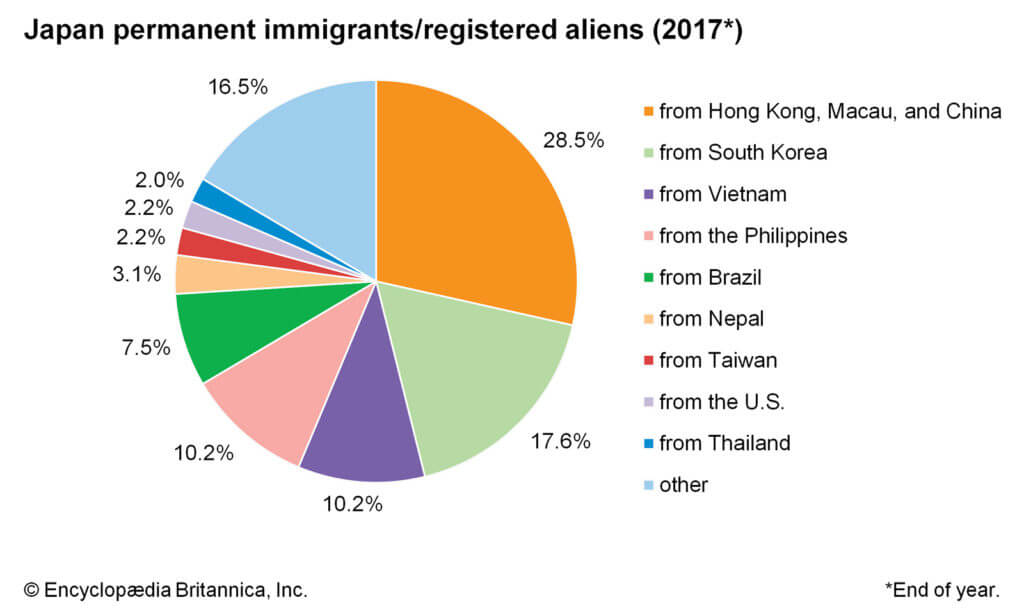
Although foreigners make up a small percentage of Japan’s population, they are an important target market for many businesses. Until the Covid-19 pandemic hit, tourism contributed to nearly 10% of Japan’s GDP. Although we can’t expect tourism to resume anytime soon, foreigners are still an important audience to market to. There are over 2 million foreign residents in Japan, and with the right campaign, many of them will be happy to become your customers. Don’t make the mistake of neglecting to cater to them, as many companies have done in the past. Thanks to popular myths like “Japan is a homogenous nation”, foreign residents can feel invisible and unheard. By creating a marketing strategy that appeals and speaks to foreigners, you will be showing them that they matter to your company. Wondering how exactly you can make your brand appeal to expats, international students, and (when the pandemic is over) tourists? Here’s a guide to marketing to foreigners in Japan.
Learn about Your Target Audience
Foreigners come to Japan under a wide variety of circumstances. Some are tourists, while others are students or workers. Expats and tourists aren’t the same target audience, so it’s important to figure out who you’re marketing to. Moreover, the foreigners who visit and live in Japan are from a wide variety of countries and cultures. It’s also a good idea to learn about communication and cultural norms in your target audience’s culture. You don’t want to accidentally offend anyone with your marketing materials. You should also learn how to interact with customers in a culturally sensitive way. Doing so will make them feel welcome and glad that they stopped by your business.

Content Shouldn’t Always Be Written in English
Not every foreigner in Japan is a native English speaker. In fact, there are quite a few foreigners in Japan that don’t speak English at all. Although the bulk of content geared towards foreigners in Japan is written in English, that doesn’t mean your marketing strategy should take the same approach. For instance, if your target audience is Chinese or Fillipino expats, it might be best to create content in Mandarin or Filipino. In addition, many expats who have spent a long time in Japan are highly proficient in Japanese. If this is your target audience, advertising in Japanese can help show respect and appreciation for their language skills.

Consider Advertising on Sites Frequented by Foreigners
Sites like Gaijinpot or Japan Today or are frequented by thousands of expats in Japan. Placing PPC ads on such sites is a great way to increase your brand’s exposure to foreigners. Gaijinpot features some businesses, such as hot springs and nightlife establishments, under the “travel” section of their site. Restaurants and cafes can offer sites like Savvy Tokyo a free meal in exchange for a review. If you’re a small business owner, some sites might be open to having you guest blog about your business. People tend to enjoy reading the stories behind local artisan’s shops or family owned restaurants.
Use Social Media that is Popular in Your Target Audience’s Home Country
Major social media sites like Facebook, Instagram, Twitter, and increasingly, TikTok, are popular everywhere. However, just like LINE is popular in Japan, many countries have a local SNS site that isn’t used much elsewhere. If your target audience is Chinese, you might want to create a profile on WeChat, Weibo, or QQ. If you’re trying to attract European or Middle Eastern customers, allowing them to contact you through WhatsApp will make communication more convenient. Advertising on SNS sites from your target audience’s home country will show potential customers that you’re willing to put in the effort to learn about them. Your efforts are sure to make them feel welcome and appreciated.
Collaborate With Expat Influencers
Some expats have become very popular social media influencers and Youtubers. Foreigners who are new to Japan and looking for advice on daily life in a new country often consume their content. Long term expats look to these influencers because they post relatable content about the joys and struggles of being a foreigner in Japan. Their audience usually trusts them, so a sponsorship deal with an influencer can produce a great ROI. Just make sure that the influencer you collaborate with is genuinely interested in your product or service. If their review seems fake or forced, it might hurt your reputation.
As we mentioned before, sometimes it makes sense to advertise in Japanese, even if your target audience is expats. In such cases, it might be worthwhile to collaborate with a Japanese influencer. After all, foreigners typically have an interest in Japanese media.
You Might not Need a Campaign Just for Foreigners
Depending on the product or service you provide, it might not be necessary to create a marketing campaign that specifically targets foreigners. Some places, like grocery stores, are frequented by just about everyone, regardless of their nationality. In addition, it’s popular for advertisements targeting Japanese people to contain some English text. This means that an Japanese ad with some well placed English words might be all your company needs to catch foreigners’ attention.
That being said, some businesses should create ads targeting foreigners. Many foreigners with limited Japanese skills report feeling uncertain about whether they are welcome in certain bars, clubs, and other nightlife establishments. This can also be true of daytime entertainment venues. If you want foreigners to frequent your nightlife or entertainment business, show them that they’re welcome! Make bilingual (or even trilingual) social media posts and add multilingual signage to your location.



